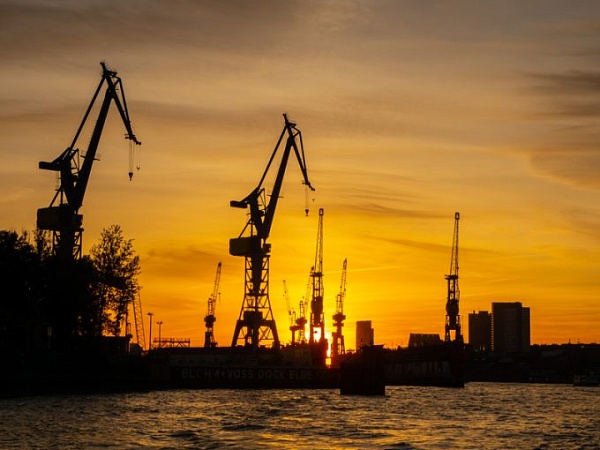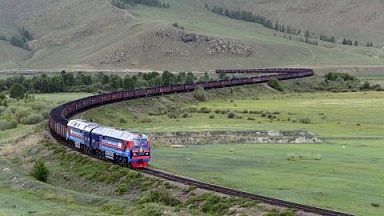Signs of a breakthrough have emerged in the standoff between German dockers and their port employers after an escalation at the weekend saw trains locked out of the Port of Hamburg.
Following five rounds of negotiations, the Central Association of German Seaport Enterprises (ZDS) tabled an offer that the union representing the port workers, Ver.di, has recommended be accepted. It is now surveying members on their response.
«After members rejected the offer from the fourth round, the employers understood they had to make up for it to avoid risk of further strikes,» said ver.di negotiator Maren Ulbrich.
«This message has arrived. The enforcement of the social component cushions the wage gap between the wage groups, lower wage groups benefit especially from the offer. But there are also real wage increases in all wage groups; everyone has more in their pocket than before.»
If accepted, the backdated deal will span 14 months to August 2025 and will result in an increase of €1.15 per hour as of October and include a €430 bump in holiday pay.
Furthermore, standard overtime and overtime for public holidays and Sundays will be pushed up and all employees, whether part-time or full-time, will receive a tax- and duty-free inflation compensation bonus of €1,700 this October.
In a statement, the union stressed that «the ver.di Federal Tariff Commission recommends that members accept the offer».
It added that the results of the survey will be known before the end of the month, with the ver.di Federal Tariff Commission set to meet on 27 September, during which time it «will decide on the offer based on the results of the member survey».
News of the breakthrough came hot on the heels of rail operators being locked out of the Port of Hamburg on Friday morning.
Rail freight operator Metrans informed customers that «the situation of the last days and weeks at the terminals of the Port of Hamburg has escalated again. This morning, we have been informed that the Port of Hamburg has issued restrictions and is not accepting trains».
«We feel we’ve reached a state in which we will have to exist in the coming months, mainly because the main railway lines are not prepared for such fluctuations in traffic,» it added.
Described as «warning strikes» by the union, the locking out of trains formed part of the industrial action that started on Wednesday of last week, with operators including Metrans noting it would be customers who suffered.
The port’s intermodal operator said: «Unfortunately, these circumstances have a huge impact on transport costs, which we will no longer be able to absorb in the future.»




